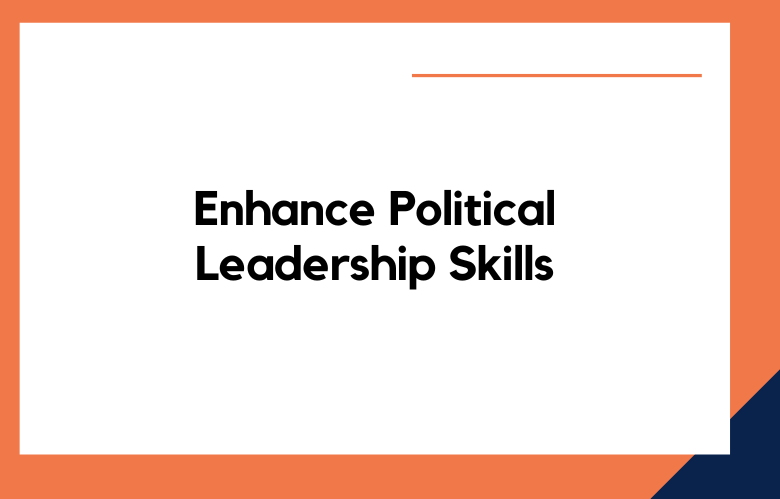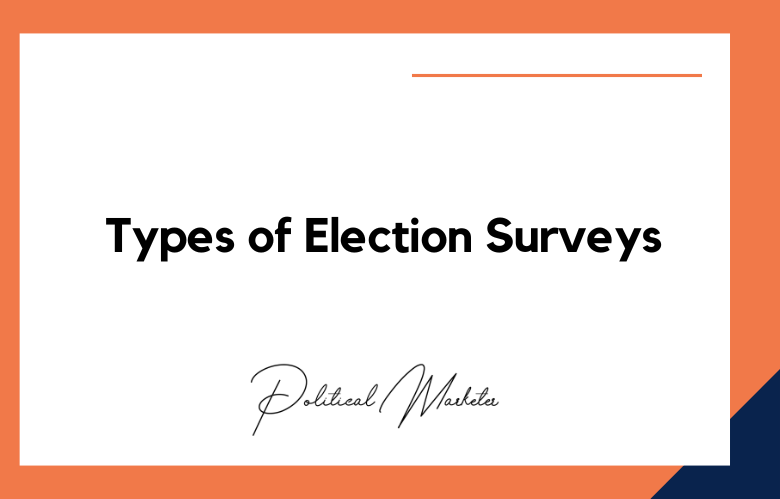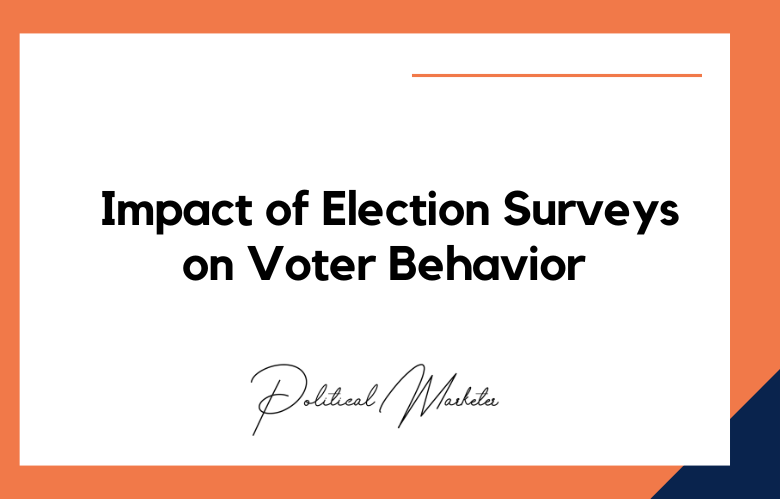Politics is a game of strategic decision-making that requires strong leadership skills to succeed. A political leader must be able to communicate effectively, influence others, and make decisions that positively impact their constituents. Over the years, leadership development programs have been created to help political leaders acquire and develop these skills.
However, there are new ways to enhance leadership skills in the age of artificial intelligence (AI). AI can potentially revolutionize how political leaders learn, communicate, and make decisions. We will explore how AI can be used to strengthen political leadership skills.
Using AI to Enhance Political Leadership Skills
AI-assisted decision-making
One of the critical challenges that political leaders face is making tough decisions that benefit their constituents. AI can help leaders make better decisions by analyzing vast amounts of data concerning a particular topic or issue.
AI algorithms are designed to discover hidden insights and patterns that may not be obvious to human decision-makers. AI’s insights can help political leaders make informed decisions based on evidence rather than conjecture.
AI-powered communication
Effective communication is an essential leadership skill, and political leaders must communicate in a way that resonates with their constituents. AI can be used to support and enhance communication skills. For example, chatbots and virtual assistants can handle routine inquiries from citizens, freeing up time for political leaders to focus on more critical issues.
AI for leadership training
Leadership training programs can help political leaders acquire and develop crucial skills. AI can be used to provide personalized, on-demand leadership training programs to politicians. AI-powered training programs can analyze the strengths and weaknesses of a politician and provide targeted training to enhance their skills in specific areas.
AI for crisis management
During times of crisis, political leaders need to make quick decisions that can have far-reaching consequences. AI can help political leaders make informed decisions during crises by analyzing real-time data and providing real-time insights. For example, AI can identify patterns in social media chatter about a particular crisis, giving politicians an overview of the public sentiment.
AI for policymaking
Creating policies that positively impact citizens is one of the primary roles of a political leader. AI algorithms can analyze population demographics, economic trends, and other factors affecting policymaking. This data can help political leaders create policies that address the needs of their constituents.
Leadership 2.0: How AI is Revolutionizing Political Decision-Making
Leadership 2.0 is a term that refers to the newest wave of leadership in the political world, one that incorporates AI into the decision-making process. With the increasing complexity of modern political issues and the monumental challenges facing global leaders, turning to the power of artificial intelligence is helping leaders make more informed decisions, reduce errors, and optimize their operations.
AI is already used in various political areas, from election campaigns to policymaking decisions. In terms of elections, AI technology can analyze data on voter preferences and behavior with an unrivaled accuracy level, helping guide campaign messages and outreach strategies.
Regarding policymaking, AI algorithms are used to forecast the outcomes of various scenarios, providing crucial insight into the potential economic, social, and environmental consequences of particular courses of action.
The Rise of AI-Assisted Politicians: How Technology is Shaping Leadership
Artificial Intelligence (AI) in politics is not a new concept. However, with the advancement of technology, AI-assisted politicians have started to gain momentum. The primary objective of incorporating AI in politics is to enhance leadership capabilities.
AI-assisted politicians can help in several ways. One such aid is in decision-making processes. With the help of AI, politicians can analyze a large amount of data in seconds, which can help them make informed decisions on various issues like economic policies, healthcare, and the environment. AI-assisted politicians can also help understand voting patterns, which can help them frame policies that resonate with most people.
Unlocking the Potential: Enhancing Political Leadership with Artificial Intelligence
Unlocking the potential of political leadership has always been a pressing global issue. With all the complexities and challenges governments face, there is a strong need to develop more advanced and efficient solutions to improve political leadership.
This is where Artificial Intelligence (AI) comes into play. AI has now taken a prominent role in transforming the political landscape as it offers opportunities to enhance the decision-making processes of political leaders.
AI provides unprecedented data-driven insights that can assist political leaders in their policymaking and decision-making processes. It can effortlessly analyze vast amounts of data generated from various sources, such as social media platforms, news articles, and even online surveys, which would take far too long for a human to evaluate.
AI-guided Politicians: A New Era of Smarter Decision-Makers
Artificial Intelligence has come a long way in revolutionizing various industries and is now targeting the political landscape. With the advent of AI-guided politicians, the world is poised for a new era of more intelligent and informed decision-making.
The current political climate is characterized by constant debates and controversies, often resulting in deadlock. But with the help of AI, politicians can now access data-driven insights to formulate promising policies and make rational decisions. AI algorithms can analyze massive amounts of data, including social media trends, news reports, public opinion polls, and economic indicators.
Beyond Human Capabilities: AI-driven Strategies for Political Leadership
Understanding and Analyzing Big Data
One of the critical strengths of AI-driven strategies for political leadership is their ability to process and analyze vast amounts of data in a short amount of time. This includes data from social media, news outlets, and other sources. AI allows political leaders to understand public sentiment better and make more informed decisions.
Predictive Analytics
AI-driven strategies also can use predictive analytics to forecast potential outcomes and trends. This can be especially useful in politics, where anticipating events or reactions can give leaders an advantage in decision-making.
Personalization
AI technology allows for personalized communication with voters and constituents. Through natural language processing, AI can analyze individual preferences and tailor messages or policies accordingly. This can help political leaders connect with their audience more personally.
Efficient Resource Allocation
Using AI algorithms, political leaders can optimize resource allocation based on data analysis rather than relying on human intuition or biases. This can lead to more efficient use of resources such as campaign funds or government budgets.
Identifying Biases
AI technology has the potential to identify biases within decision-making processes, whether conscious or unconscious. By recognizing these biases, political leaders can work towards making more objective and fair decisions.
Real-time Monitoring
With the help of AI, political leaders can monitor real-time events and reactions, allowing them to respond quickly and effectively to changing situations or crises.
Strategic Communication
AI-powered tools such as chatbots or virtual assistants can assist in strategic communication with the public by providing timely information and responding to inquiries 24/7.
Streamlined Decision-making
Through machine learning algorithms, AI-driven strategies for political leadership can provide insights that aid decision-making processes by identifying patterns and predicting potential outcomes.
Mitigating Human Error
Unlike humans, who are prone to making mistakes, AI technology can consistently and accurately process information, reducing the risk of human error in decision-making.
Ethical Considerations
While AI-driven strategies have many advantages, political leaders need to consider ethical implications and ensure that decisions made by AI are aligned with moral values and principles. This includes transparency in decision-making processes and addressing potential biases within the technology.
From Data to Leadership: Harnessing AI for Political Success
In today’s rapidly changing world, where technology plays an increasingly vital role in our daily lives, leveraging artificial intelligence (AI) has become a critical factor in achieving political success.
From data to leadership, AI can be harnessed to facilitate informed decision-making, enhance communication and outreach strategies, and create tailored policies that cater to the needs of diverse communities.
The importance of data analysis cannot be overstated in the context of political campaigns. With AI, political strategists and analysts can tap into various data sources to gain valuable insights into voter behavior, preferences, and attitudes. This data can include publicly available sources such as social media posts, news articles, voting records, census data, and proprietary data acquired through polling and surveys.
AI in the Political Sphere: Maximizing Potential and Minimizing Bias
Artificial Intelligence (AI) has become an essential tool in various industries, including politics. In the political sphere, AI is used to analyze data, predict outcomes of election campaigns, and provide insights into policymaking decisions. These applications can potentially maximize the potential of AI in politics, but there is also a need to address the bias in AI systems.
Bias in AI can arise from various sources, including the training data used to train the systems and the algorithms used to make decisions. This bias can lead to unequal treatment of different groups of people and undermine the democratic process. AI systems must be developed with fairness and non-discrimination to avoid such instances.
Conclusion:
AI can be used to enhance political leadership skills in various ways. From analyzing data to providing personalized leadership training, AI has the potential to make political leaders more effective.
However, AI must be used responsibly, and political leaders must remember that AI is only a tool to enhance their leadership skills, not a replacement for their judgment. As long as political leaders use AI responsibly and ethically, it can be a powerful tool to improve their decision-making, communication, and policymaking skills.
Call: +91 9848321284
Email: [email protected]










